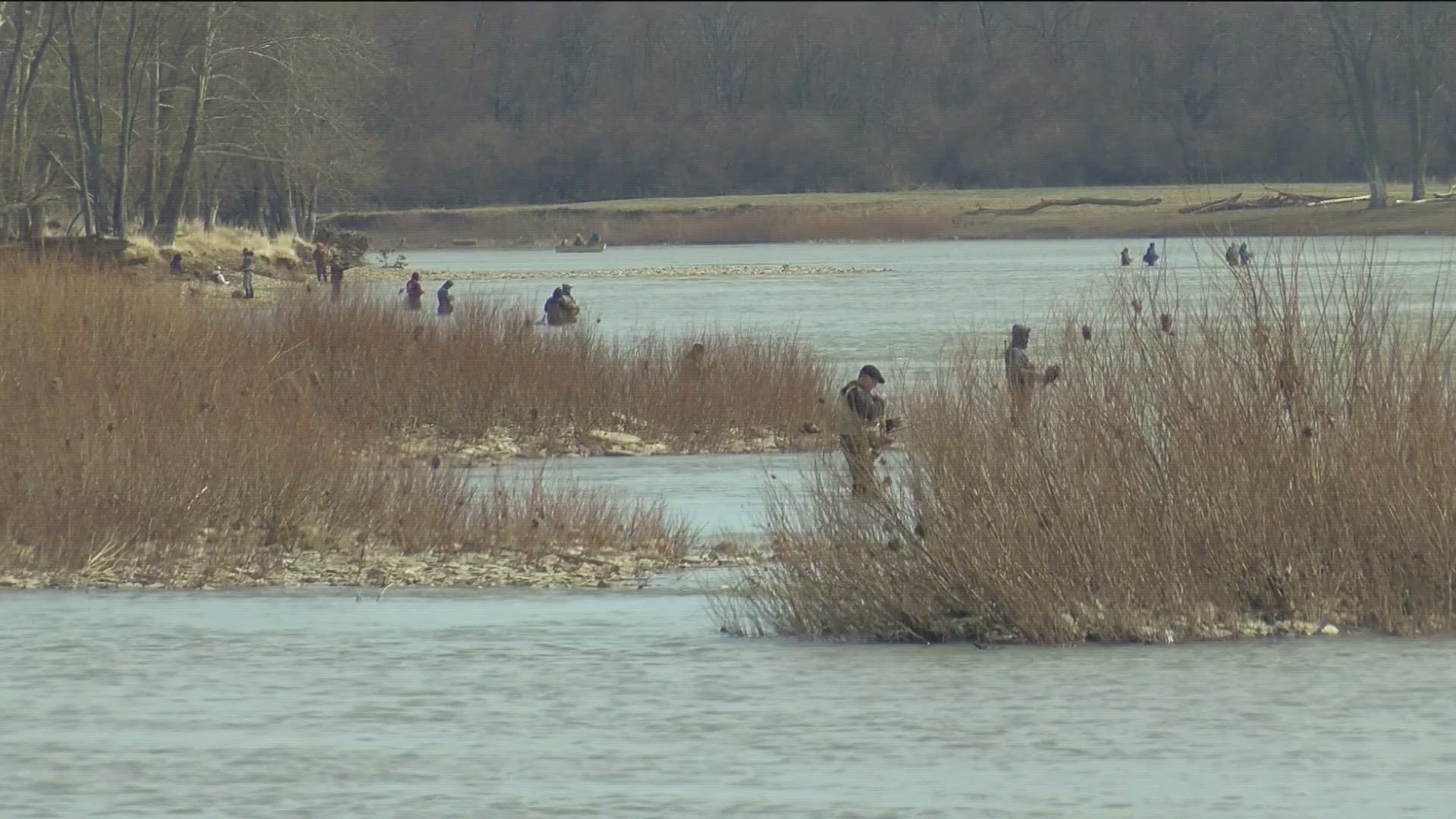MAUMEE, Ohio — Thousands of fishermen from across the United States make their way to northwest Ohio annually for the Walleye Run, but a new study suggests they might want to think twice before frying up any freshwater fish.
The Washington, D.C.-based Environmental Working Group released a new study based on research from the FDA and EPA, showing freshwater fish across the United States are now polluted with alarming levels of forever chemicals called PFAS, which are synthetic and have been used in industry and consumer products for decades.
According to the study, eating just one fish could be equivalent to drinking a month's worth of contaminated water. You can view an interactive map of where samples were taken and the results here.
Locally, samples included 2010 channel catfish in western Lake Erie and 2015 yellow perch. The catfish contained 5,900 PFAS and the perch contained 11,380.
2010 freshwater drum were found to have over 40,000 PFAS.
EWG estimates thousands of companies have been dumping the chemical into our rivers, streams and lakes across the country for decades.
Of the 500 sample fish tested, fish from urban areas and the Great Lakes had the highest concentrations of PFAS, with even the median amount found in the fish was determined to be 280 times greater than fish commercially caught and sold.
While data on PFAS is limited, according to the California Water Board's research, studies indicate PFAS exposure can lead to cancer, immune system issues, liver and thyroid problems, and harm to a developing fetus or infant.
WTOL 11 took this information to fishermen at the Maumee River Tuesday. Charles Meredith found the data quite alarming.
"Man, that's really something," Meredith said. "I'm glad to know that because I don't eat fish...but I used to catch a lot of fish, and I used to just give them away. But now that I know that they have contamination, I'm not going to give fish to them. And I don't want to scare anybody catching fish and they're like, 'I don't want to eat that - it has contamination.'"
WTOL 11 reached out to the commissioner of the Lucas County Health Department, who said he still needs to do more research on PFAS contamination locally before he's ready to speak on the issue. But he said once he feels well versed, he'll give further guidance to the public.
RELATED VIDEO

